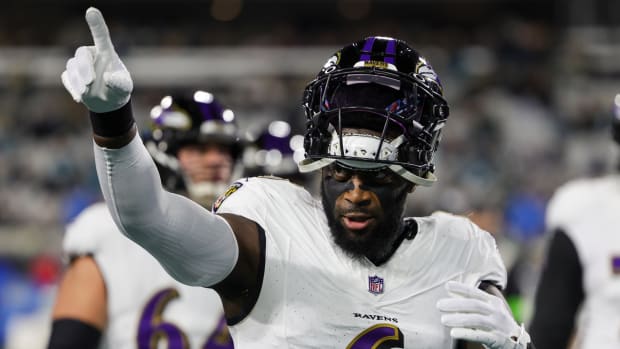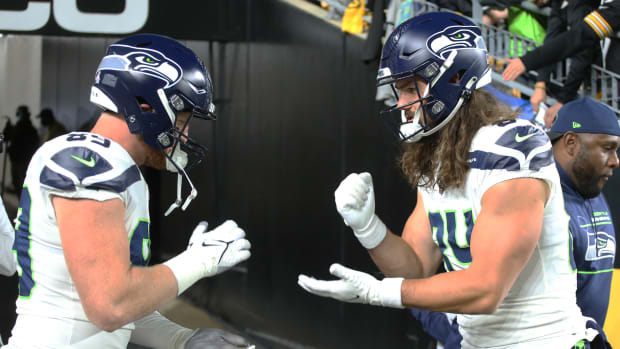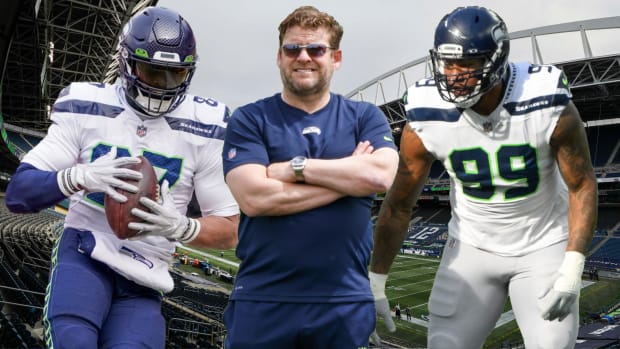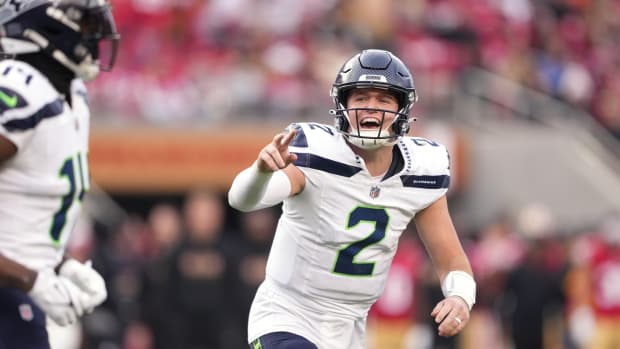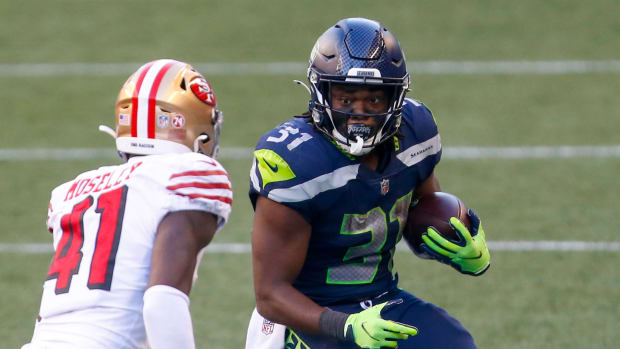Closing Thoughts: Carroll's Indecision Key Factor in Seahawks Crushing Loss to Ravens
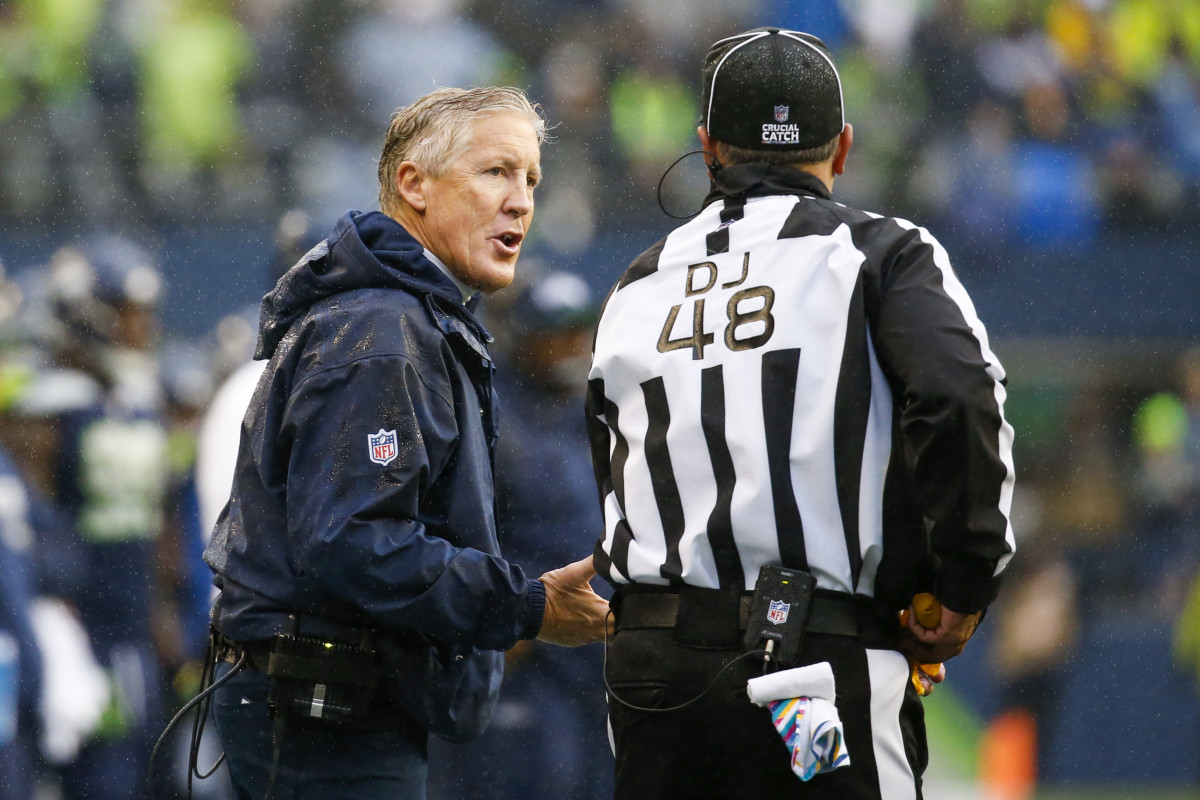
If you've read my Closing Thoughts articles before, you know I'm an optimist, a positive thinker, always looking for the silver lining. Heck, that's essentially the basis of this recurring column - to put a more measured spin on what happened the day before after some time to reflect, without the blur of game day emotion that can cause one to pound the keyboard a little harder and be a bit more harsh in making global assessments on the state of the Seahawks.
Well, you won't be getting optimism, positive thoughts, or silver linings today.
The Seahawks have a problem - and it's the worst kind of problem a professional football team can have.
It's a head coaching problem; a Pete Carroll problem.
Let me preface this all by saying I'm a Carroll fan. I love the guy. In an often cut throat, drama-filled, win-at-all-costs business, I find his positive approach to be infectious and refreshing. I enjoyed watching his teams at USC, I've read his books, and I've gone out of my way to listen to him address his philosophies. He's my head coach. I want him to lead Seattle to more Super Bowl titles.
But this season I find his stated beliefs to be incongruent with his actions. For someone who espouses the dual mantras of Always Compete and Win Forever, he's become someone more inclined to second guess himself and make game day decisions that contradict who he says he is as a leader and who his football team should be between the lines.
In other words, he's become indecisive, and possibly soft. And now for the second time this season, we've seen it cost the Seahawks a potentially significant win.
In their Week 3 loss to the Saints, Carroll opted to go for it on fourth down late in the second quarter. The Seahawks failed to pick it up and Carroll openly questioned his decision after the game, even going so far as to admit he may have to rethink his previous aggressive nature.
Two weeks later, he did just that, opting for a long Jason Myers field goat attempt late in the first half against the Rams. Myers missed the kick and the Rams promptly scored. The Seahawks ultimately won the game, but after the game Carroll bristled at questions about his conservative choices.
On Sunday, with 6:51 remaining in the third quarter and the score tied at 13-13, Carroll faced another key turning point and once again made the wrong choice. In a driving rain, he chose to send Myers in for a field goal attempt from 53 yards instead of going for it on 4th and 3. Predictably, Myers missed.
Adding insult to injury, less than six minutes later Ravens coach John Harbaugh faced the same dilemma but chose to go for it on 4th and 2 and watched quarterback Lamar Jackson score on a keeper. Harbaugh's assertive choice dramatically shifted the momentum of the game and shined a spotlight on Carroll's newfound ambivalence.
This isn't a case of revisionist history or 20/20 hindsight. I'm quite sure just about everyone in the stands, on Twitter, and at home was screaming for the Seahawks to go for it on that decisive fourth down play.
Harbaugh said he made his choice because he listened to his quarterback, who was pleading for a chance to change the game. He was in tune with the moment, the flow of the game, and the passion of his dynamic young signal caller.
The problem with Carroll, it seems, is he can't even trust his own voice. He's so twisted about what to do in these moments now that he's got a serious case of Analysis Paralysis.
What we loved about Carroll leading up to the Seahawks Super Bowl XLVIII victory was his clear vision. He knew who he was, what he wanted, and how he was going to get it. That passionate conviction filtered down to his coaching staff and players, and his teams would impose their will on opponents. My biggest concern now is you can see, feel, and sense his indecisiveness. Does the team feel it too? Has it eroded their once formidable edge?
It's not just in his play calling that we see Carroll's newfound conservative nature. Young, seemingly more talented players sit in favor of struggling veterans. The defense is managed as if it's still anchored by elite players when clearly it's not. And offensive play calling shifts in illogical patterns. Why was Russell Wilson dropping back to pass 29 of the Seahawks first 44 plays Sunday, on a stormy day, after a year and a half of the coach pounding his chest and telling the world this team's identity would be that of a physical running squad?
Don't get me wrong, I'm not saying this is a fatal flaw... yet. Carroll has shown the ability to adapt and adjust before. But at age 68, with nearly 50 years of coaching experience under his belt and a college national championship and Super Bowl title to his name, why do we find ourselves having to hope for change? Why is he questioning himself? Why the ambivalence? Why now?
I don't mean to sound all doom-and-gloomy. If the playoffs started today, Seattle would get in as a Wild Card team. Winnable games are in store the next two weeks before a key showdown on Monday Night Football against the San Francisco 49ers on November 11. But a roster talented enough to contend for the Super Bowl is now two games behind those 49ers in the NFC West. Yes the Seahawks are 5-2, but those two losses have come at home. Both featured bad decisions gone awry by Carroll and only a Greg Zuerlein missed field goal as time expired let him off the hook in the Rams game.
Still one of the best coaches in the sport, Carroll's job isn't in jeopardy. Far from it. But if his ill-conceived decisions continue to cost the Seahawks winnable games and they somehow miss the playoffs for a second time in three years during Russell Wilson's prime, some interesting discussions could be on tap for the organization this offseason.
It's a concern - a big one. Even big enough to turn my Closing Thoughts column into a single Closing Thought: Pete Carroll simply needs to be better.

